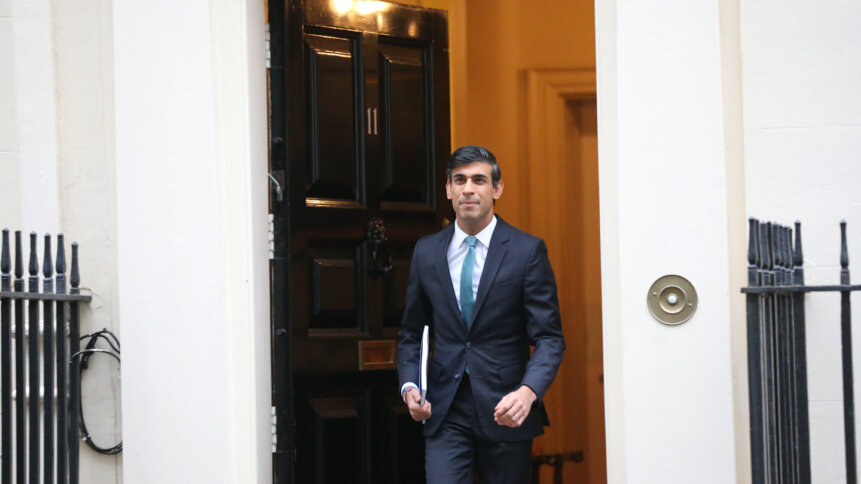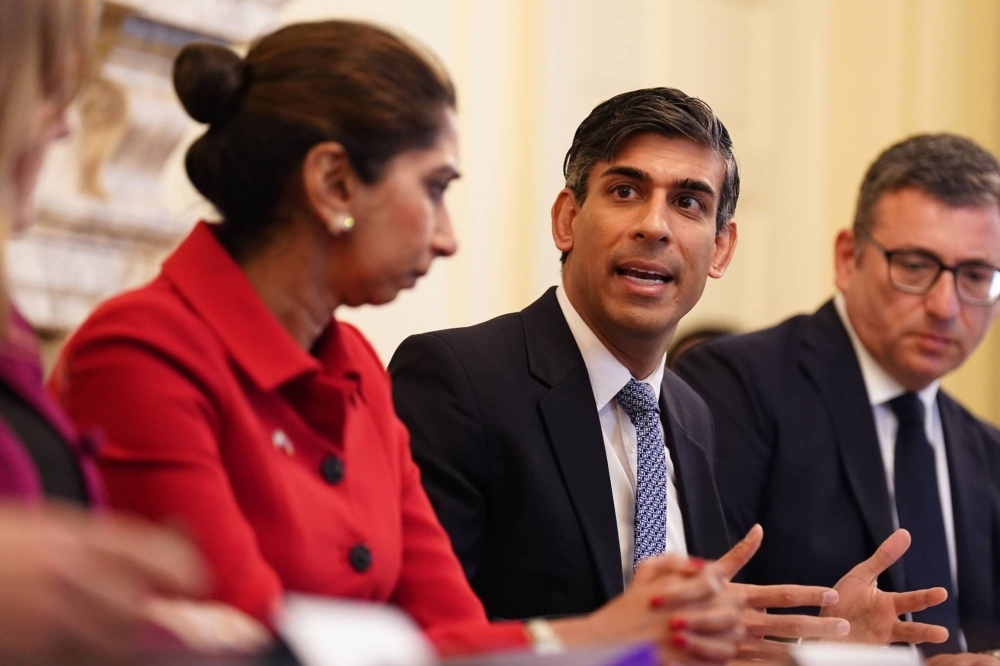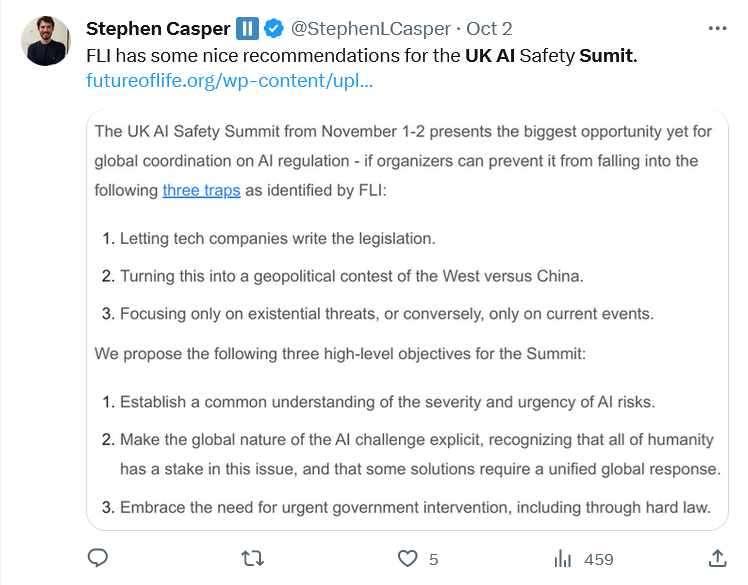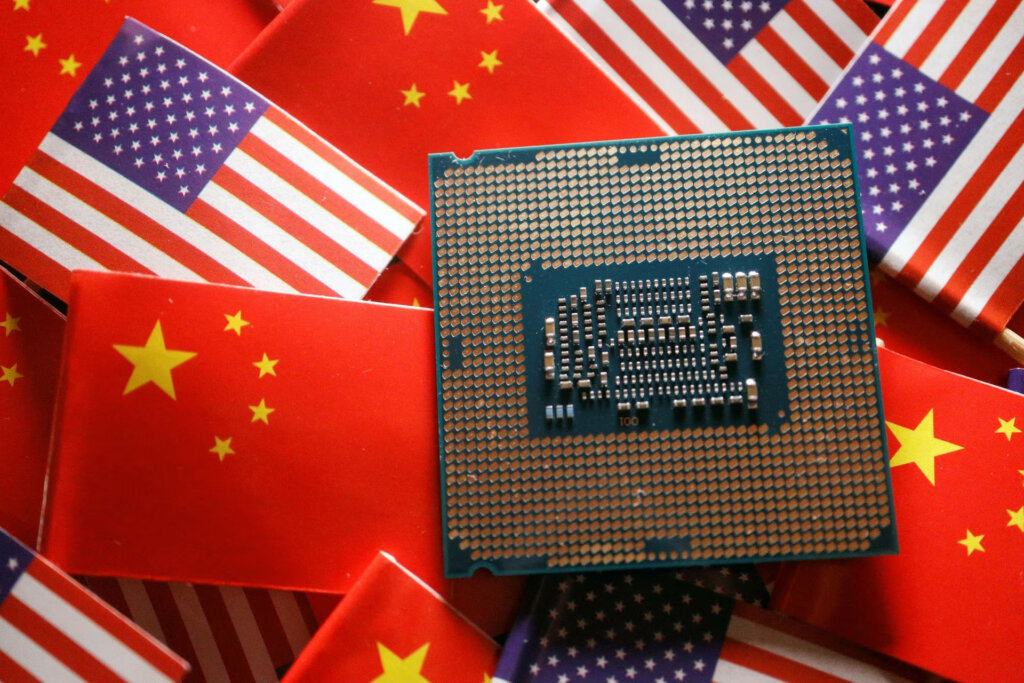To summit up: UK’s Sunak scrabbles for global AI relevancy

- An AI summit will be hosted in the UK this November.
- Rishi Sunak hopes other nations will echo his concerns.
- Controversially, China is invited to the AI summit.
Rishi Sunank, the Prime Minister of the UK, is pushing for other nations to label AI as capable of “catastrophic harm” at the AI safety summit the country is hosting next month. The UK is aiming to form a common international approach to managing the technology.
Britain will host the first global AI safety summit – partly motivated by carving out a post-Brexit role as an arbiter between the US, China, and the European Union in the growing tech sector.

Rishi Sunak pushes for countries to label AI as capable of catastrophic harm.
The vision is that countries will sign up to a joint position outlining specific concerns about AI’s impact on cybersecurity and biotechnology.
“There is potential for significant, even catastrophic, harm, either deliberate or unintentional, stemming from the most dangerous capabilities of these AI models,” according to a draft communique circulated to attendees. The final wording will be hammered out by officials by October 25th.
The AI summit will take place November 1st-2nd. Sunak, who wants the UK to be a hub for AI safety, has said the technology could be used by criminals and terrorists to create weapons of mass destruction.
The aim of the summit is to kickstart international dialogue on AI regulation, said Matt Clifford, a tech investor and one of its two chief organisers. The program was recently released.
“It’s not a parliament,” Clifford said. “We’re not making laws. We’re not making treaties. We’re trying to bring different people into the conversation with very different opinions.”
The draft, dated October 16th, highlights the “transformative opportunities” of AI, particularly in public services like health, education, science and clean energy. A prominent part of the summit will focus on this.
The document that’s been seen by Bloomberg is still subject to change, though Sunak’s administration is close to producing a final version – all this according to a person close to the matter who doesn’t want to be named while discussing information not yet publicly released.
The meeting will be held at Bletchley Park, which was home to British codebreakers including Alan Turing during World War II. It’s part of an initiative by Sunak to position the UK at the forefront of AI and help inform regulatory approaches and establish “guardrails” for the industry worldwide.

Confusing computing: the codebreaking retreat will host UK’s AI Safety Summit.
It’s expected that 100 people from 28 nations will attend the AI summit, including business executives, industry experts and global leaders. US Vice President Kamala Harris and Google DeepMind CEO Demis Hassabis head a guest list that includes lawmakers, AI pioneers and academics.
Global leaders are further set to call for increased transparency from companies developing AI technologies, and will focus on creating “clear evaluation metrics, tools for safety testing, and developing relevant public sector capability and scientific research.”
“Particular safety risks arise at the ‘frontier’ of general-purpose AI, as well as in some cases specific narrow AI that could exhibit dangerous capabilities,” the draft says. “The most significant of these risks arise from potential intentional misuse or issues of control, where AI systems may seek to increase their own influence and reduce human control, and these issues are in part because those capabilities are not fully understood.”
Along with other documents circulated among participants, the draft also says that the European Commission is pushing for a process for international collaboration for frontier AI safety.
The EU’s focus contrasts with that of the UK: it’s prioritizing the technology’s implications for human rights and corporate transparency.
The bloc is also supportive of any agreed approach that falls in line with its own AI legislation, including focus on its potential misuse in cyberattacks and the ability for advanced systems to lose control.
It also says that developers of “unusually powerful and potentially dangerous frontier AI capabilities have a particularly strong responsibility for ensuring the safety of these capabilities,” and that all “relevant actors” are urged to “provide context-appropriate transparency and accountability on their plans to measure, monitor and mitigate potentially dangerous capabilities and the associated effects that may emerge.”

The AI summit, as it should be, according to the Future of Life Institute.
The UK aims to have follow-up meetings every six months to report progress toward managing the opportunities and risks of AI.
“For the common good, AI must be designed, developed, deployed, and used in such a way as to be human-centric, safe, trustworthy and responsible,” the draft communique says.
Domestic UK optics?
Some analysts said the conference shouldn’t focus so specifically on existential threats, claiming there are more pressing concerns: “Most people I speak to are baffled that the UK has taken this approach,” said Stephanie Hare, author and leading researcher in technology ethics. “The question is: what are you going to do about it?”
Further, critics wonder why Britain has appointed itself the center of AI safety, but supporters say the summit will underline London’s position as a world-leading technology hub.
In this regard, it’s worth remembering Prime Minister Sunak’s electoral situation in his own country. The fifth Prime Minister under an ongoing Conservative government that has been in power for 13 years, and notably, a Prime Minister that has not yet been elected by a vote in the country, Sunak needs to be seen to be saving people from some existential threat if he’s to pull off what’s considered by pollsters to be an electoral miracle and win another term in office some time within the next year.
This can be seen in other areas of his policy agenda too – rather than dealing with illegal migration through a process of setting up legal routes and processing enormous backlogs, his approach has been to “Stop the boats!” – externalizing the problem and framing it as that kind of existential threat, so that coming up with a solution to the threat that would mean it is crucial to re-elect him.
So far, it should also be noted, the boats have not been stopped.
While Dealroom data, published in December, showed that British tech companies raised more capital in 2022 than those in France and Germany combined, giving some notional legitimacy to the UK’s actions in planning the AI summit, the optics of Sunak saving the world from potentially “catastrophic harm” at the diabolic diodes of rogue AI would do the embattled Prime Minister no domestic harm whatsoever.
AI summit: uniting old enemies?
Marc Warner, CEO of London-based AI firm Faculty, who is attending the summit, said: “There are three big poles in the world: the US, the EU, and China. If you’re going to try and do some kind of international collaboration, it’s not obvious that any one of those would let it be situated in the others.”
The underlying argument of this logic seems to be that the UK is now so insignificant on the world stage it can afford to act as an honest broker, though whether the EU would agree with that remains to be seen.
In fact, there has already some contention surrounding attendees at the AI summit. The EU confirmed that Vice President Vera Jourova had received an invitation to the event, but would not confirm her attendance.
“We are now reflecting on potential EU participation,” a spokesperson told Reuters.
While European architects of AI regulation won’t necessarily be present, there’s further backlash because China is expected to attend, the Financial Times reported.
UK Chancellor Jeremy Hunt (equivalent to the Secretary of the Treasury) defended the decision in an interview with Politico, saying: “If you’re trying to create structures that make AI something that overall is a net benefit to humanity, then you can’t just ignore the second-biggest economy in the world.”

The tensions just keep rising!
On October 17, the Biden administration issued a sweeping update to restrictions on exporting advanced AI to China, measures that are designed to prevent China from acquiring the cutting-edge chips needed to develop AI technologies.
US officials say the tech has military uses that present a national security threat. The new rules impose a “performance density” limitation that aims at preventing workarounds like “chiplets.”
The new technology known as chiplets is the process by which smaller sections of a chip are joined together to form a whole. Analysts were concerned Chinese firms would use such technology to acquire chiplets within the legal limits to later assemble into a secret larger chip that would break the rules.
Britain seems to figure itself a force for good, bridging the chip war rift so that everyone can get along and regulate AI safely. Spectators globally await the potential fireworks at the AI summit at Bletchley Park this November.











